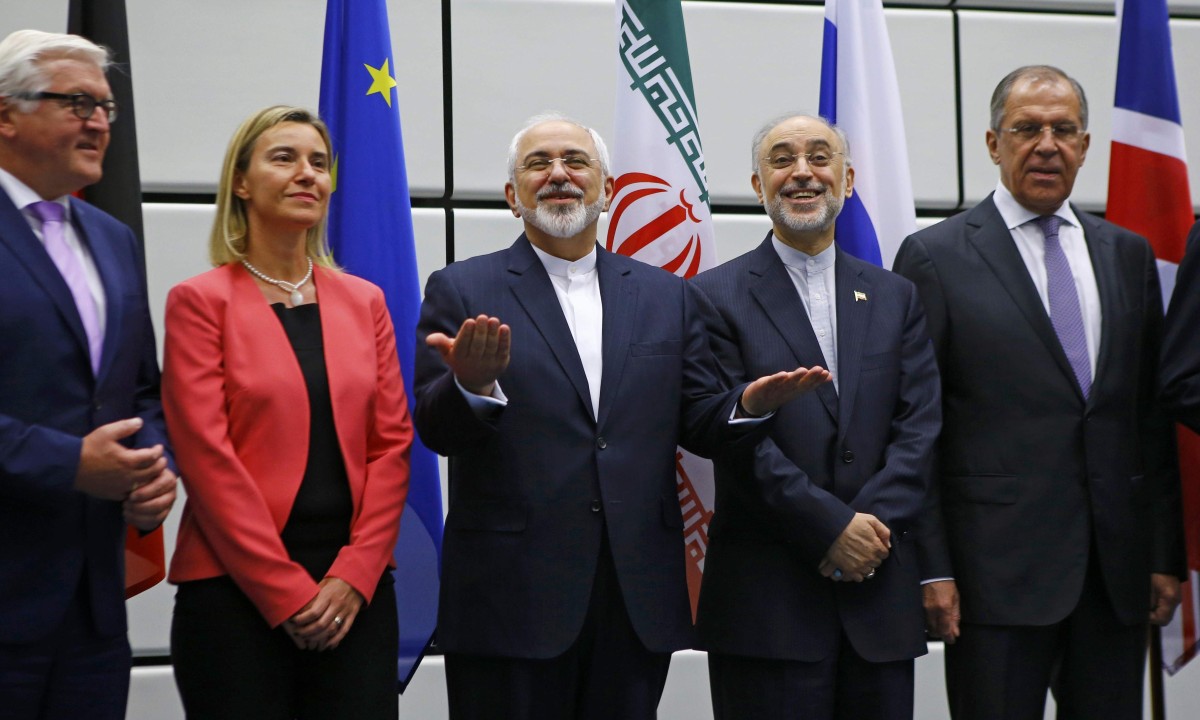UK (Parliament Politic Magazine) – In a significant development, the United Kingdom and other European powers are poised to break new ground by reneging on the 2015 Iran nuclear deal. This forthcoming announcement will confirm their decision to withhold the lifting of sanctions on Tehran’s missile program, as stipulated in the agreement, this October.
While Donald Trump’s decision to withdraw the United States from the nuclear deal in 2018 made headlines, Germany, France, and the UK chose to remain steadfast in their commitment. However, Iran, in response to the US withdrawal, has brazenly exceeded the agreed-upon restrictions on enriched uranium, both in terms of quality and quantity. As a result, Iran now stands closer than ever to achieving the production of weapons-grade uranium.
UK and EU’s Defiant Stance: Breaking the Iran Nuclear Deal with Sanction Continuation
The decision made by the UK and European powers to breach the deal also poses a significant risk, as it remains uncertain how Tehran will respond, especially when it is already on the verge of producing weapons-grade enriched uranium.
EU and British diplomats have justified their actions by pointing out Iran’s own violation of the agreement, officially referred to as the Joint Comprehensive Plan of Action (JCPOA). Additionally, they have highlighted Iran’s sale of drones to Russia, which were subsequently used in the invasion of Ukraine. Furthermore, concerns have been raised regarding potential future transfers of Iran’s ballistic missiles to Russia.
By breaching the deal, European powers have introduced a considerable element of risk into the equation. The response from Tehran, already on the brink of producing weapons-grade enriched uranium, remains uncertain.
EU and British diplomats have justified their actions by highlighting Iran’s violation of the Joint Comprehensive Plan of Action (JCPOA). They have also drawn attention to Iran’s sale of drones to Russia, which was employed in the invasion of Ukraine. Furthermore, concerns have been raised regarding the potential transfer of Iran’s ballistic missiles to Russia in the future.
EU Sanctions Set To Expire In October
The European Union (EU) sanctions, scheduled to lapse on 18 October, were implemented under a United Nations (UN) resolution that solidified the 2015 nuclear accord. These sanctions explicitly called upon Iran to abstain from any activities aimed at developing ballistic missiles capable of carrying nuclear warheads.
Additionally, the sanctions prohibited the unauthorized purchase, sale, or transfer of drones and their components with a flight range exceeding 300km (186 miles) to or from Iran. However, the UN Security Council has not granted the necessary permission for such transactions. By incorporating more precise language and rephrasing certain sections, we have made the text more engaging, professional, and comprehensible.
Future Of The Agreement Is Under Flux Due To A Major Reason
The future of the agreement hangs precariously in the balance following intense discussions held in Oman between the United States and Iran. These crucial talks centered around Iran’s commitment to refrain from enriching uranium beyond the 60% threshold. In return, the Western nations would release billions of dollars in frozen funds, while also securing the release of American prisoners held captive in Tehran.
However, this proposed limited agreement has ignited a fierce debate within the United States, with leading Republicans vehemently denouncing the idea of further negotiations with Iran. One prominent voice in this opposition is Mike Pompeo, the former Secretary of State, who passionately expressed his disapproval during a conference held by the National Council of Resistance of Iran in Paris.
Read More: A British Retreat: Tracing the UK’s Slow Surrender to European Union Demands
UK and European Union Refusal to Lift Sanctions Signals Breach of Iran Nuclear Deal
John Bolton, a former US national security adviser under the Trump administration, expressed his belief that the most effective approach to altering the situation within Iran does not involve extending additional assistance to the regime or providing them with another opportunity to sustain themselves. Instead, he advocates for severing their means of support and allowing the authentic voice of the Iranian people to prevail.
Former UK Prime Minister Liz Truss emphasized the utmost importance of preventing Iran from obtaining a nuclear weapon. She accused Tehran of evading the issue and delaying a resolution, while secretly advancing their nuclear weapons program. Truss firmly asserted that we cannot afford to let them buy more time and called for a stronger stance against Iran.


